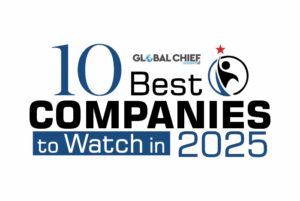Zest: Igniting Value in Every Benefit


How Zest’s journey reshapes employee wellbeing through clarity and connection!
Zest was born with a simple belief: that benefits should feel human, not hidden. When Matt Russell took the helm in March 2023, he brought over two decades of experience in HR and benefits services. His goal was clear: make benefits easy to use and deeply personal.
Imagine a workplace where every perk, discount, and total reward feels earned and understood. That is the world Zest builds for its clients. They have grown to serve hundreds of organisations with flexible benefits platforms that launch fast and work smoothly with payroll, HR, and existing providers.
Zest won Best Benefits Technology Platform at the Corporate Adviser Awards in 2024. The judges recognized its simplicity and seamless integrations, and praised its redesigned mobile app, a real step forward in user experience. That award reflects what Matt Russell often says: clarity matters, and engagement follows when employees feel seen.
What this really means is a shift from generic perks to benefits that match each person’s needs, mental health support, discounts, financial advice, even menopause or remote working allowances. And Zest does it with transparency through tools like Total Reward Statements that break down the full value of what an employee gets.
Matt Russell leads with purpose and precision. Under his guidance, Zest is more than a platform. It is a tool businesses use to connect people and value. This is the story of a company turning benefits into clarity, and clarity into engagement.
Zest at a Glance: A Modern Benefits Platform
Zest is a UK based employee benefits platform founded in 2004, now celebrating two decades of evolution. It enables employers to streamline benefits administration through one unified interface. Think flexible benefits, employee discounts, total reward statements, apps, and marketplace integrations, all managed within a modular platform.
Zest’s value is rooted in personalisation: it adapts to individual workforce needs rather than offering one size fits all packages. Engagement data shows the strategy works. Typical platforms deliver 40 to 50 percent uptake, but Zest achieves an exceptional 80 to 90 percent engagement rate, with client Newcastle Building Society seeing 87 percent of colleagues logging in during the first three weeks and 99 percent over six months.
Zest integrates with existing HR, payroll, and benefits systems, making implementation fast and painless. Unlike platforms that take months, Zest can go live in days. Its analytics tools break down take up across teams, demographics and benefit types, empowering HR teams with the insight to maximise value and usage. The platform supports modern perks such as carbon offsetting, car leasing, childcare vouchers, critical illness cover and corporate wellbeing allowances, all packaged into one system. As of early 2025, Zest serves 500 employers and over 300,000 employees, including firms like Yahoo, Hargreaves Lansdown, Bakkavor, Travis Perkins and ADP.
Zest is more than just benefits tech. It is reshaping how organisations value, communicate with and reward their workforce. It is built with scalability in mind, supporting both UK based and multinational enterprises with rules automation, real time updates, and customisation by job grade, location or employee circumstances. The result: HR teams get simplicity, compliance, transparency, and employees see benefits that actually matter.
The Leadership Transition: From Sieber to Russell
In March 2023, Zest’s long serving CEO Ray Sieber retired after ten years at the helm, overseeing transformation, a shift out of corporate ownership in 2021, and a 10 million pound investment program that launched the modern Zest platform in 2018. Sieber guided the business through critical growth phases. Under his watch, the platform gained momentum and over 700 organizations had embraced it across global markets by late 2022 to 2023.
Taking over was Matt Russell, a seasoned HR tech veteran with over 20 years in benefits and software sectors. He most recently served as Chief Commercial Officer at CIPHR, led commercial at HR software provider Benefex, and held senior roles at LHH Penna and CIPHR earlier in his career. Zest chose him for his deep domain knowledge, and his track record scaling enterprise sales across multiple regions, managing M&A, and driving team performance at scale.
Sieber stayed on in an advisory role and continues to invest in Zest’s future, while handing over leadership with confidence. Russell acknowledged the warm welcome and emphasized that Zest already enjoys a strong reputation, but he is excited to push it further. He says the platform is known for delivering a personalized experience, and he is committed to advancing that value for customers, partners, and their employees.
This leadership shift signals both continuity and ambition. Russell builds on Sieber’s foundation, with an eye toward further expansion, deeper analytics, and heightened engagement. The transition aligns neatly with Zest’s 20th anniversary, symbolising a new chapter in its journey toward becoming the benefits platform of choice for customer centric HR teams worldwide.
Matt Russell’s Vision and Background
Matt Russell brings a wealth of experience in HR tech, commercial leadership, and benefits strategy. He was Chief Commercial Officer at CIPHR from 2020 to 2022, Chief Sales Officer at Benefex from 2018 to 2020, and held senior roles at LHH Penna and others. He has led large, distributed teams, navigated global enterprise sales, and managed M&A transitions. An alumnus of INSEAD and Hyper Island, he also holds an HND in Business Information Technology from University of Bolton.
Russell’s leadership style centres on customer intimacy and team collaboration. He believes in a culture grounded in accountability, open communication, and shared ownership. He emphasizes that employee engagement grows when teams have fun and find purpose, and at Zest, wellbeing is as much a priority as customer impact. In a recent brand Q&A, he described Zest’s new visual identity, a vibrant orange and dynamic look, as reflective of their ambitions and energy.
His public commentary highlights these priorities. In a Zest blog post, Russell laid out how benefits and wellbeing matter for talent strategy. He explained why companies need to go beyond pay, use personalized benefits, and communicate total reward clearly to stand out in a competitive market. He talks about how take up improves when employees understand what they are entitled to and can easily tailor what they receive, and how that requires digital tools built for speed, clarity, and insight.
Russell’s vision is clear. Zest is not just about benefits administration; it is about delivering meaningful experiences that connect employees to organisations. The platform, he argues, should empower HR teams to deliver smarter, faster, more personal rewards with analytics that show real ROI. Zest under Russell is crafting a future of benefits that is human first, tech enabled and data smart.
Brand Refresh: Capturing Zest’s Energy
In September 2023, Zest unveiled a full brand refresh, led by Russell, signaling a fresh chapter. The bold orange palette, new look and messaging were designed to reflect the company’s evolving identity: dynamic, engaging and people centric. The brand reboot was not cosmetic. It reinforced Zest’s commitment to a new era of employee engagement driven by technology.
Russell explained that the rebrand matches their mission: to invigorate workplace culture, energize benefits communication and signal that Zest thinks differently about how employers connect with talent. The visual shift was paired with upgraded messaging, customer case stories, and refreshed product demos, all aligned to reinforce Zest’s promise of personalization and simplicity.
This rebranding supports product evolution too. With newer features in their flexible benefits and marketplace offering, Zest’s updated identity brings consistency across all touchpoints, from marketing collateral to platform UI, client onboarding, and support services. The internal culture benefits too. The refreshed brand fuels team energy and collective pride.
This rebrand shows that Zest is not standing still. It is not just improving tech. It is reshaping how it shows up to customers and teams. It is a visual statement of ambition. Under Russell’s direction, Zest now projects confidence, as an innovative tech company that still retains humility, care and purpose. Zest wants its vibrancy to feel welcoming and powerful for customers and employees alike.
Customer Impact: Who Uses Zest and Why It Matters
Zest serves more than 500 employers and over 300,000 employees across industries. Clients include Hargreaves Lansdown, Taylor Wimpey, ADP, Travis Perkins, Newcastle Building Society, Yahoo, and Bakkavor. These organizations turn to Zest because it simplifies benefits management, deepens engagement, and adds transparency around total reward value.
The core of Zest’s appeal is adoption. Most platforms struggle with only 40 to 50 percent employee engagement. Zest routinely delivers 80 to 90 percent. One client saw 87 percent logins in the initial weeks, rising to 99 percent in six months. Overall, engagement across the customer base grew by 5 percent year on year, and first time users climbed by 50 percent in 2024 compared to 2023. That kind of success comes from ease of use, personalization and clear communication.
Zest offers real benefits variety, wellbeing allowances, car leasing, breakdown cover, carbon offsetting, childcare vouchers, critical illness cover and more, all in one interface. The platform is modular. Tools can be customized by role, location or grade, and employees access only what applies to them. It fits with existing HR and payroll systems, avoiding long integration timelines. Clients report implementation in days, compared to six months typical elsewhere.
Analytics are powerful. HR can track take up by department, demographic or benefit type. That data drives targeted communications and adjustments. Russell talks about how total reward statements help employees understand their full compensation, beyond salary, and increase engagement significantly. That clarity boosts perceived value and helps retain talent, which is critical in today’s tight labor market.
Zest is not just selling software. It is enabling organizations to deliver benefits that work, people actually use, and talent values. It is a benefits engine that converts policy into engagement, administered at scale and backed by insight.
Promotion of Wellbeing and Talent Retention
Russell consistently speaks to Zest’s role in wellbeing and talent strategies. In a blog post he laid out how businesses can attract and retain employees without the unsustainable race to raise salaries. Instead, he argues, flexible wellbeing benefits tailored to employee needs are more durable and impactful. In turbulent times, rising costs, inflation, job market shifts, employees increasingly value benefits like mental health days, financial education tools or menopause support over pure cash compensation.
Through Zest, companies can tailor these offerings quickly and communicate their value clearly. Total reward statements let employees see not just pay, but total benefits worth. That awareness drives take up and signals that employers understand and support their people. Zest’s digital tools allow easy implementation within days and deliver analytics that show demographic and team level differences in take up. Armed with that, HR can adjust offerings and messaging to hit the mark.
Russell argues this holistic approach builds a stronger employer brand, one that cares about wellbeing, listens to employee needs, and rewards people in meaningful ways. That is the new currency of retention. Organizations that overlook these softer benefits risk losing talent even if they offer higher salary elsewhere.
Under his leadership, Zest positions itself as a strategic partner in employer wellbeing, not just a tech vendor. Its platform becomes a tool for HR to foster culture, improve engagement, and retain people. In a competitive talent landscape, that positioning is powerful. It uses tech to deliver human impact.
Culture Inside Zest: Values in Action
Zest’s internal culture reflects its outward brand: collaborative, accountable, vibrant and grounded. The team is described as creative, passionate problem solvers committed to elevating employee experience. They pride themselves on being reliable. When they promise a deliverable, they deliver, while maintaining honesty and humility.
Team life comes with laughter, connection and a sense that work is both meaningful and fun. Zest leaders emphasize psychological safety, wellbeing, and mutual support. The culture enables colleagues to bring their best selves every day, a value Russell consistently reiterates. That internal ethos matches the benefits they help deliver to clients, authentic, supportive, people focused.
Russell’s leadership style reinforces these values. He engages closely with customers and teams, blending commercial ambition with empathy. In his content and interviews, he calls out the importance of investing in people, not just because it is good practice but because it is good business. The team’s energy and collaborative mindset matter to product innovation and client satisfaction alike.
This culture driven approach creates sustainable growth. Motivation and trust are high, innovation thrives, and customer experience stays strong. Culture becomes a competitive advantage. Under Russell, Zest walks the talk internally before helping clients deliver the same externally.
What Next for Zest: Growth and Innovation Roadmap
Zest’s trajectory is clear. It aims to deepen its position as the go to platform for personalized employee benefits across markets. Under Russell, the company is eyeing broader footprints, more global enterprise sales, and strategic partnerships to scale fast. Since his arrival, Zest has closed major sales and continues pushing its market leadership.
Investment in data analytics and AI is likely to accelerate. Zest already shines in engagement metrics and segmentation insight. Next steps could include predictive personalization or automated wellbeing recommendations aligned with workforce needs. Russell’s background in enterprise systems and M&A suggests Zest may expand features organically or through acquisition.
The refreshed brand and energized team set the stage for broader marketing reach. Russell has positioned Zest as a thought leader in benefits tech, sharing insights on wellbeing, total reward and retention strategies. That thought leadership supports product adoption.
More importantly, Zest’s growth plan rests on outcomes, continued high adoption rates, improved employee retention for clients, and measurable ROI. As talent markets tighten, companies leaning into personalized benefits as cultural and retention tools will increasingly turn to tech like Zest.
In short, the next chapter under Russell is about combining technology, data and empathy at scale. Zest plans to transform benefits from line items into experiences that engage, reward and retain people, globally and efficiently. It is a strategic vision grounded in who they are, who they serve and where they are heading.




